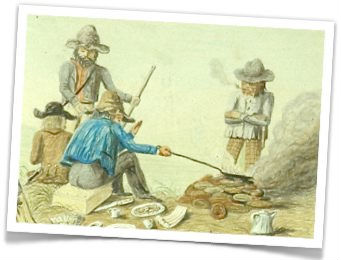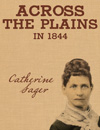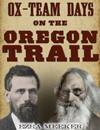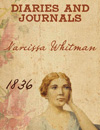Camping
Day after day after...

LEFT: Camping on the trail wasn’t easy. There wasn’t much wood, so the pioneers had to burn buffalo dung. This drawing, made by an overland pioneer, shows a pile of dung burning--with the flame cooking breakfast.
After a few days on the trail, the emigrants would settle into a well-defined daily routine. Awake before sunup; yoke the oxen, cook the breakfast; and hit the trail.
There was an hour break for lunch and at about six p.m., they set up camp. The emigrants did circle their wagons, but it wasn't for protection against the Native American tribes. Instead, the circle provided a convenient corral for loose livestock.
Almost immediately the campfires started burning and dinner was begun. Cooking bread over a campfire was something of a challenge--the result was usually burned on the outside and doughy on the inside. Even worse, keeping bugs and dirt out of the mix was nearly impossible.
When the Trail got crowded--in 1849 and later--camping became more difficult. The biggest problem was finding fuel for the campfires. Soon trees were scarce and there was only one alternative--buffalo dung. No one liked collecting it, but it did burn--and gave off a consistent odorless flame.
Emigrant Goldsborough Bruff:
"It is the duty of the cooks on arriving at a camping place to collect chips for cooking. It would amuse friends back home to see them make a grand rush for the largest and driest chips. The chips burn well when dry, but if damp or wet are smokey and almost fireproof."
If they were lucky, the emigrants would have quail or buffalo with their bread. But most often, they ate bacon--day after day.
Emigrant Rev. Samuel Parker:
"Dry bread and bacon consisted our breakfast, dinner and supper. The bacon we cooked when we could obtain wood for fire; but when nothing but green grass could be seen, we ate our bacon without cooking."
By nine p.m. they would bed down for the night. Some families had tents, but most just slept right on the ground. Pure exhaustion helped them get to sleep--but it wasn't comfortable:
Emigrant Niles Searls:
"We rose this morning from our bed upon the ground with sensations similar to that I imagine must pervade the frame of the inebriate----after a week's spree."
At five a.m. the whole process started again; fifteen miles a day for nearly six months.




